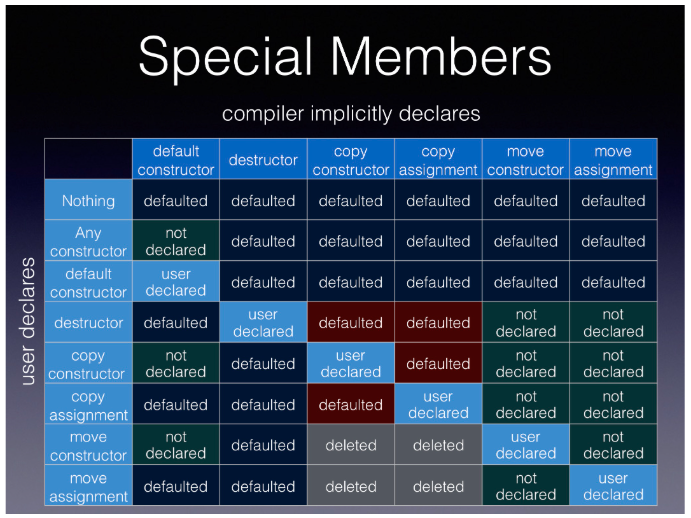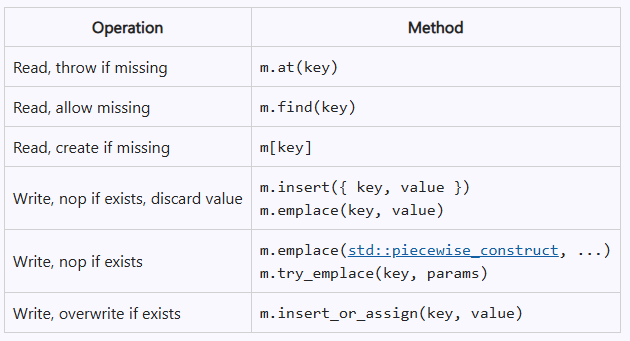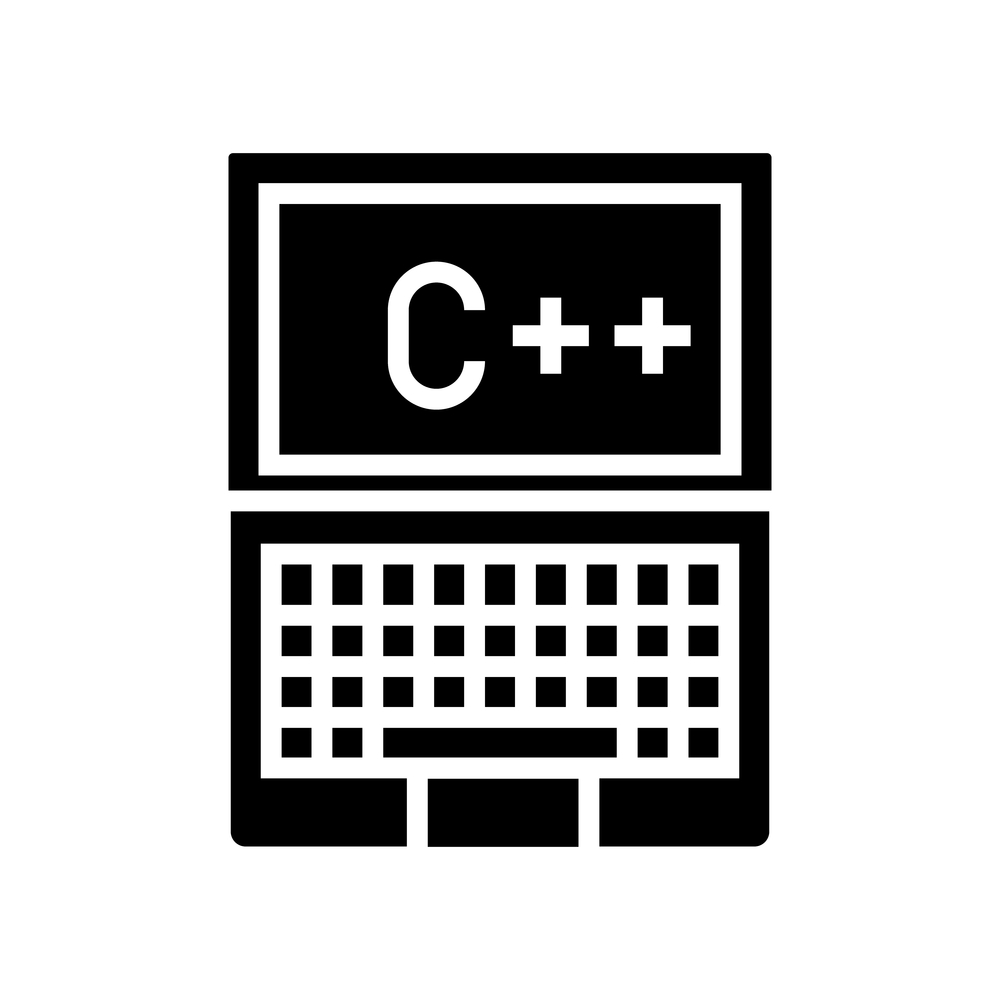2025-01 Mailing Available
The 2025-01 mailing of new standards papers is now available.
| WG21 Number | Title | Author | Document Date | Mailing Date | Previous Version | Subgroup |
|---|---|---|---|---|---|---|
| P0149R1 | Generalised member pointers | Jeff Snyder | 2025-01-13 | 2025-01 | P0149R0 | EWG Evolution |
| P0260R14 | C++ Concurrent Queues | Detlef Vollmann | 2025-01-12 | 2025-01 | P0260R13 | SG1 Concurrency and Parallelism,LEWG Library Evolution |
| P0876R19 | fiber_context - fibers without scheduler | Oliver Kowalke | 2025-01-13 | 2025-01 | P0876R18 | EWG Evolution,CWG Core,LWG Library |
| P1030R8 | std::filesystem::path_view | Niall Douglas | 2024-12-21 | 2025-01 | P1030R7 | LEWG Library Evolution |
| P1839R7 | Accessing object representations | Brian Bi | 2025-01-11 | 2025-01 | P1839R6 | CWG Core |
| P2079R6 | System execution context | Lucian Radu Teodorescu | 2025-01-13 | 2025-01 | P2079R5 | SG1 Concurrency and Parallelism,LEWG Library Evolution |
| P2414R5 | Pointer lifetime-end zap proposed solutions | Paul E. McKenney | 2025-01-11 | 2025-01 | P2414R4 | SG1 Concurrency and Parallelism,LEWG Library Evolution,LWG Library |
| P2434R3 | Nondeterministic pointer provenance | S. Davis Herring | 2025-01-13 | 2025-01 | P2434R2 | SG22 Compatibility,EWG Evolution,CWG Core |
| P2654R1 | Modules and Macros | Alisdair Meredith | 2025-01-13 | 2025-01 | P2654R0 | EWG Evolution,LEWG Library Evolution |
| P2663R6 | Proposal to support interleaved complex values in std::simd | Daniel Towner | 2025-01-13 | 2025-01 | P2663R5 | LEWG Library Evolution |
| P2664R9 | Proposal to extend std::simd with permutation API | Daniel Towner | 2025-01-13 | 2025-01 | P2664R8 | SG1 Concurrency and Parallelism,LEWG Library Evolution |
| P2688R5 | Pattern Matching: `match` Expression | Michael Park | 2025-01-13 | 2025-01 | P2688R4 | EWG Evolution |
| P2719R2 | Type-aware allocation and deallocation functions | Louis Dionne | 2025-01-06 | 2025-01 | P2719R1 | EWG Evolution,CWG Core |
| P2719R3 | Type-aware allocation and deallocation functions | Louis Dionne | 2025-01-08 | 2025-01 | P2719R2 | EWG Evolution,CWG Core |
| P2746R7 | Deprecate and Replace Fenv Rounding Modes | Hans Boehm | 2025-01-12 | 2025-01 | P2746R6 | SG6 Numerics,LEWG Library Evolution |
| P2758R4 | Emitting messages at compile time | Barry Revzin | 2025-01-07 | 2025-01 | P2758R3 | LEWG Library Evolution,CWG Core |
| P2806R3 | do expressions | Barry Revzin | 2025-01-12 | 2025-01 | P2806R2 | EWG Evolution |
| P2825R4 | Overload resolution hook: declcall( unevaluated-call-expression ) | Gašper Ažman | 2025-01-13 | 2025-01 | P2825R3 | EWG Evolution,CWG Core |
| P2830R8 | Standardized Constexpr Type Ordering | Gašper Ažman | 2025-01-09 | 2025-01 | P2830R7 | LWG Library |
| P2830R9 | Standardized Constexpr Type Ordering | Gašper Ažman | 2025-01-10 | 2025-01 | P2830R8 | EWG Evolution,LEWG Library Evolution,CWG Core,LWG Library |
| P2841R6 | Concept and variable-template template-parameters | Corentin Jabot | 2025-01-13 | 2025-01 | P2841R5 | CWG Core |
| P2843R1 | Preprocessing is never undefined | Alisdair Meredith | 2025-01-13 | 2025-01 | P2843R0 | SG22 Compatibility,EWG Evolution |
| P2883R1 | `offsetof` Should Be A Keyword In C++26 | Alisdair Meredith | 2025-01-10 | 2025-01 | P2883R0 | EWGI SG17: EWG Incubator,EWG Evolution |
| P2899R0 | Contracts for C++ - Rationale | Timur Doumler | 2025-01-13 | 2025-01 | SG21 Contracts,EWG Evolution,LEWG Library Evolution | |
| P2900R13 | Contracts for C++ | Joshua Berne | 2025-01-13 | 2025-01 | P2900R12 | CWG Core,LWG Library |
| P2933R3 | std::simd overloads for <bit> header | Daniel Towner | 2025-01-13 | 2025-01 | P2933R2 | LWG Library |
| P2952R2 | auto& operator=(X&&) = default | Arthur O'Dwyer | 2025-01-08 | 2025-01 | P2952R1 | CWG Core |
| P2953R1 | Forbid defaulting operator=(X&&) && | Arthur O'Dwyer | 2025-01-08 | 2025-01 | P2953R0 | EWGI SG17: EWG Incubator |
| P2971R3 | Implication for C++ | Walter E Brown | 2025-01-12 | 2025-01 | P2971R2 | EWG Evolution,LEWG Library Evolution |
| P2988R9 | std::optional<T&> | Steve Downey | 2025-01-13 | 2025-01 | P2988R8 | LEWG Library Evolution,LWG Library |
| P2996R9 | Reflection for C++26 | Barry Revzin | 2025-01-13 | 2025-01 | P2996R8 | EWG Evolution |
| P3019R12 | Vocabulary Types for Composite Class Design | Jonathan Coe | 2025-01-12 | 2025-01 | P3019R11 | LEWG Library Evolution,LWG Library |
| P3045R5 | Quantities and units library | Mateusz Pusz | 2025-01-13 | 2025-01 | P3045R4 | SG6 Numerics,SG16 Unicode,LEWGI SG18: LEWG Incubator,LEWG Library Evolution |
| P3070R2 | Formatting enums | Victor Zverovich | 2025-01-13 | 2025-01 | P3070R1 | LEWG Library Evolution |
| P3081R1 | Core safety profiles for C++26 | Herb Sutter | 2025-01-06 | 2025-01 | P3081R0 | EWG Evolution,LEWG Library Evolution |
| P3086R3 | Proxy: A Pointer-Semantics-Based Polymorphism Library | Mingxin Wang | 2025-01-13 | 2025-01 | P3086R2 | LEWGI SG18: LEWG Incubator,LEWG Library Evolution |
| P3094R6 | std::basic_fixed_string | Mateusz Pusz | 2025-01-10 | 2025-01 | P3094R5 | LEWG Library Evolution |
| P3111R3 | Atomic Reduction Operations | Gonzalo Brito Gadeschi | 2025-01-13 | 2025-01 | P3111R2 | EWG Evolution,LEWG Library Evolution |
| P3125R3 | constexpr pointer tagging | Hana Dusíková | 2025-01-13 | 2025-01 | P3125R2 | LEWG Library Evolution |
| P3139R1 | Pointer cast for unique_ptr | Zhihao Yuan | 2024-12-27 | 2025-01 | P3139R0 | LEWG Library Evolution |
| P3148R1 | Formatting of chrono Time Values | Alan Talbot | 2025-01-13 | 2025-01 | P3148R0 | LEWG Library Evolution |
| P3164R3 | Early Diagnostics for Sender Expressions | Eric Niebler | 2025-01-09 | 2025-01 | P3164R2 | LEWG Library Evolution |
| P3176R1 | The Oxford variadic comma | Jan Schultke | 2024-12-18 | 2025-01 | P3176R0 | CWG Core |
| P3179R5 | C++ parallel range algorithms | Ruslan Arutyunyan | 2025-01-13 | 2025-01 | P3179R4 | LEWG Library Evolution |
| P3206R0 | A sender query for completion behaviour | Maikel Nadolski | 2025-01-13 | 2025-01 | SG1 Concurrency and Parallelism | |
| P3229R0 | Making erroneous behaviour compatible with Contracts | Timur Doumler | 2025-01-13 | 2025-01 | SG21 Contracts,EWG Evolution,LEWG Library Evolution | |
| P3289R1 | Consteval blocks | Daveed Vandevoorde | 2025-01-12 | 2025-01 | P3289R0 | EWG Evolution,CWG Core |
| P3347R1 | Invalid/Prospective Pointer Operations | Paul E. McKenney | 2025-01-11 | 2025-01 | P3347R0 | EWG Evolution |
| P3348R2 | C++26 should refer to C23 not C17 | Jonathan Wakely | 2025-01-13 | 2025-01 | P3348R1 | SG6 Numerics,LEWG Library Evolution |
| P3351R2 | views::scan | Yihe Li | 2025-01-12 | 2025-01 | P3351R1 | SG9 Ranges |
| P3367R3 | constexpr coroutines | Hana Dusíková | 2025-01-06 | 2025-01 | P3367R2 | EWG Evolution,LWG Library |
| P3373R1 | Of Operation States and Their Lifetimes | Robert Leahy | 2025-01-11 | 2025-01 | P3373R0 | LEWG Library Evolution |
| P3374R1 | Adding formatter for fpos | Liang Jiaming | 2025-01-07 | 2025-01 | P3374R0 | LEWGI SG18: LEWG Incubator,LEWG Library Evolution |
| P3375R2 | Reproducible floating-point results | Guy Davidson | 2025-01-13 | 2025-01 | P3375R1 | SG6 Numerics,EWGI SG17: EWG Incubator |
| P3385R3 | Attributes reflection | Aurelien Cassagnes | 2025-01-06 | 2025-01 | P3385R2 | SG7 Reflection |
| P3388R1 | When Do You Know connect Doesn't Throw? | Robert Leahy | 2025-01-11 | 2025-01 | P3388R0 | LEWG Library Evolution |
| P3394R1 | Annotations for Reflection | Daveed Vandevoorde | 2025-01-12 | 2025-01 | P3394R0 | SG7 Reflection,LEWG Library Evolution,CWG Core |
| P3395R0 | Formatting of std::error_code | Victor Zverovich | 2024-12-22 | 2025-01 | SG16 Unicode | |
| P3400R0 | Specifying Contract Assertion Properties with Labels | Joshua Berne | 2025-01-09 | 2025-01 | SG21 Contracts,All of WG21 | |
| P3402R2 | A Safety Profile Verifying Initialization | Marc-André Laverdière | 2025-01-13 | 2025-01 | P3402R1 | SG23 Safety and Security |
| P3407R1 | Make idiomatic usage of `offsetof` well-defined | Brian Bi | 2025-01-11 | 2025-01 | P3407R0 | EWG Evolution |
| P3411R1 | `any_view` | Hui Xie | 2025-01-11 | 2025-01 | P3411R0 | SG9 Ranges,LEWG Library Evolution |
| P3412R1 | String interpolation | Bengt Gustafsson | 2025-01-12 | 2025-01 | P3412R0 | EWGI SG17: EWG Incubator,EWG Evolution |
| P3420R1 | Reflection of Templates | Andrei Alexandrescu | 2025-01-13 | 2025-01 | P3420R0 | SG7 Reflection |
| P3423R1 | Extending User-Generated Diagnostic Messages | Yihe Li | 2025-01-12 | 2025-01 | P3423R0 | EWG Evolution |
| P3425R1 | Reducing operation-state sizes for subobject child operations | Lewis Baker | 2025-01-13 | 2025-01 | P3425R0 | LEWG Library Evolution |
| P3430R2 | simd issues: explicit, unsequenced, identity-element position, and members of disabled simd | Matthias Kretz | 2025-01-13 | 2025-01 | P3430R1 | LEWG Library Evolution |
| P3431R0 | Deprecate const-qualifier on begin/end of views | Jonathan Müller | 2025-01-13 | 2025-01 | SG9 Ranges | |
| P3439R1 | Chained comparisons: Safe, correct, efficient | Herb Sutter | 2025-01-06 | 2025-01 | P3439R0 | EWG Evolution |
| P3475R1 | Defang and deprecate memory_order::consume | Hans Boehm | 2025-01-11 | 2025-01 | P3475R0 | SG1 Concurrency and Parallelism,EWG Evolution,LEWG Library Evolution,CWG Core,LWG Library |
| P3477R2 | There are exactly 8 bits in a byte | JF Bastien | 2025-01-11 | 2025-01 | P3477R1 | LEWG Library Evolution,CWG Core |
| P3480R3 | std::simd is a range | Matthias Kretz | 2025-01-13 | 2025-01 | P3480R2 | LEWG Library Evolution |
| P3481R1 | std::execution::bulk() issues | Lucian Radu Teodorescu | 2025-01-13 | 2025-01 | P3481R0 | SG1 Concurrency and Parallelism,LEWG Library Evolution |
| P3491R1 | define_static_{string,object,array} | Barry Revzin | 2025-01-12 | 2025-01 | P3491R0 | EWG Evolution,LEWG Library Evolution |
| P3496R0 | Immediate-Escalating Expressions | Barry Revzin | 2025-01-05 | 2025-01 | EWG Evolution,LEWG Library Evolution | |
| P3499R0 | Exploring strict contract predicates | Lisa Lippincott | 2025-01-13 | 2025-01 | SG21 Contracts,EWG Evolution | |
| P3500R0 | Are Contracts "safe"? | Timur Doumler | 2025-01-13 | 2025-01 | EWG Evolution | |
| P3501R0 | The ad-dressing of cats | S. Davis Herring | 2025-01-10 | 2025-01 | EWG Evolution,CWG Core,LWG Library | |
| P3506R0 | P2900 Is Still not Ready for C++26 | Gabriel Dos Reis | 2025-01-13 | 2025-01 | EWG Evolution | |
| P3516R0 | Uninitialized algorithms for relocation | Louis Dionne | 2025-01-13 | 2025-01 | LEWG Library Evolution | |
| P3527R1 | Pattern Matching: *variant-like* and `std::expected` | Michael Park | 2025-01-13 | 2025-01 | P3527R0 | EWG Evolution,LEWG Library Evolution |
| P3533R1 | constexpr virtual inheritance | Hana Dusíková | 2025-01-10 | 2025-01 | P3533R0 | EWG Evolution |
| P3534R0 | Avoid UB When Compiling Code That Violates Library Specification | Alisdair Meredith | 2025-01-13 | 2025-01 | LWG Library | |
| P3541R1 | Violation handlers vs `noexcept` | Andrzej Krzemieński | 2025-01-06 | 2025-01 | P3541R0 | SG21 Contracts,SG23 Safety and Security,EWG Evolution |
| P3546R0 | Explicit return type deduction for std::numeric_limits and numbers | Thomas Mejstrik | 2024-12-19 | 2025-01 | LEWGI SG18: LEWG Incubator | |
| P3547R0 | Modeling Access Control With Reflection | Dan Katz | 2025-01-09 | 2025-01 | SG7 Reflection,LEWG Library Evolution | |
| P3548R0 | P1030 `std::filesystem::path_view` forward progress options | Niall Douglas | 2025-01-13 | 2025-01 | LEWG Library Evolution | |
| P3549R0 | Diverging expressions | Barry Revzin | 2025-01-12 | 2025-01 | EWG Evolution | |
| P3550R0 | Imports cannot ... | Alisdair Meredith | 2025-01-13 | 2025-01 | EWGI SG17: EWG Incubator,LEWGI SG18: LEWG Incubator | |
| P3552R0 | Add a Coroutine Lazy Type | Dietmar Kühl | 2025-01-13 | 2025-01 | SG1 Concurrency and Parallelism,LEWG Library Evolution | |
| P3554R0 | Non-transient allocation with vector and basic_string | Barry Revzin | 2025-01-05 | 2025-01 | EWG Evolution | |
| P3555R0 | An infinite range concept | Jonathan Müller | 2025-01-13 | 2025-01 | SG9 Ranges | |
| P3557R0 | High-Quality Sender Diagnostics with Constexpr Exceptions | Eric Niebler | 2025-01-12 | 2025-01 | LEWG Library Evolution | |
| P3558R0 | Core Language Contracts By Default | Joshua Berne | 2025-01-12 | 2025-01 | SG21 Contracts,SG23 Safety and Security | |
| P3559R0 | Trivial relocation: One trait or two? | Arthur O'Dwyer | 2025-01-08 | 2025-01 | LEWG Library Evolution | |
| P3560R0 | Error Handling in Reflection | Barry Revzin | 2025-01-12 | 2025-01 | EWG Evolution,LEWG Library Evolution | |
| P3561R0 | Index based coproduct operations on variant, and library wording | Esa Pulkkinen | 2025-01-13 | 2025-01 | LEWGI SG18: LEWG Incubator | |
| P3564R0 | Make the concurrent forward progress guarantee usable in `bulk` | Mark Hoemmen | 2025-01-12 | 2025-01 | SG1 Concurrency and Parallelism | |
| P3565R0 | Virtual floating-point values | S. Davis Herring | 2025-01-10 | 2025-01 | SG6 Numerics | |
| P3566R0 | You shall not pass `char*` - Safety concerns working with unbounded null-terminated strings | Marco Foco | 2025-01-13 | 2025-01 | SG23 Safety and Security,LEWG Library Evolution,LWG Library,ARG ABI Review Group | |
| P3567R0 | `flat_meow` Fixes | Hui Xie | 2025-01-11 | 2025-01 | LEWG Library Evolution,LWG Library | |
| P3568R0 | break label; and continue label; | Jan Schultke | 2025-01-12 | 2025-01 | EWGI SG17: EWG Incubator,SG22 Compatibility | |
| P3569R0 | Split define_aggregate from Reflection | Shafik Yaghmour | 2025-01-11 | 2025-01 | EWG Evolution | |
| P3572R0 | Pattern matching | Bjarne Stroustrup | 2025-01-12 | 2025-01 | EWG Evolution | |
| P3573R0 | Contract concerns | Bjarne Stroustrup | 2025-01-12 | 2025-01 | SG21 Contracts,EWG Evolution,LEWG Library Evolution | |
| P3574R0 | Constexpr Callables | Steve Downey | 2025-01-13 | 2025-01 | LEWG Library Evolution,LWG Library | |
| P3575R0 | SG14: Low Latency/Games/Embedded/Financial Trading virtual Meeting Minutes 2024/11/13 | Michael Wong | 2025-01-12 | 2025-01 | SG14 Low Latency | |
| P3576R0 | SG19: Machine Learning virtual Meeting Minutes to 2024/11/14-2024/12/12 | Michael Wong | 2025-01-12 | 2025-01 | SG19 Machine Learning | |
| P3577R0 | Requiring a non-throwing system-provided (default) contract-violation handler | John Lakos | 2025-01-12 | 2025-01 | SG21 Contracts,EWG Evolution | |
| P3578R0 | Language Safety and Grandma Safety | Ryan McDougall | 2025-01-13 | 2025-01 | SG21 Contracts,SG23 Safety and Security,EWG Evolution | |
| P3579R0 | Fix matching of non-type template parameters when matching template template parameters | Matheus Izvekov | 2025-01-13 | 2025-01 | CWG Core | |
| P3580R0 | The Naming of Things | Alan Talbot | 2025-01-13 | 2025-01 | EWG Evolution,LEWG Library Evolution | |
| P3581R0 | No, inplace_vector shouldn't have an Allocator | Nevin Liber | 2025-01-13 | 2025-01 | LEWG Library Evolution | |
| P3582R0 | Observed a contract violation? Skip subsequent assertions! | Andrzej Krzemieński | 2025-01-13 | 2025-01 | SG21 Contracts,EWG Evolution | |
| P3583R0 | Contracts, Types & Functions | Jonas Persson | 2025-01-13 | 2025-01 | SG21 Contracts | |
| P3584R0 | Enrich Facade Creation Facilities for the Pointer-Semantics-Based Polymorphism Library - Proxy | Mingxin Wang | 2025-01-13 | 2025-01 | LEWGI SG18: LEWG Incubator,LEWG Library Evolution | |
| P3585R0 | allocator_traits::is_internally_relocatable | Pablo Halpern | 2025-01-13 | 2025-01 | LEWGI SG18: LEWG Incubator,LEWG Library Evolution | |
| P3586R0 | The Plethora of Problems With Profiles | Corentin Jabot | 2025-01-13 | 2025-01 | EWG Evolution | |
| P3587R0 | Reconsider reflection access for C++26 | Lauri Vasama | 2025-01-13 | 2025-01 | SG7 Reflection,EWG Evolution | |
| P3588R0 | Allow static data members in local and unnamed classes | Brian Bi | 2025-01-13 | 2025-01 | EWG Evolution | |
| P3589R0 | C++ Profiles: The Framework | Gabriel Dos Reis | 2025-01-13 | 2025-01 | EWG Evolution | |
| P3590R0 | Constexpr Coroutines Burdens | Daveed Vandevoorde | 2025-01-13 | 2025-01 | EWG Evolution,CWG Core |

 Last time,
Last time,  Since its introduction,
Since its introduction,  We all know that every ‘,’ matters in this language, so I decided to talk directly about that character today. So, how much impact can be for such a small little character?
We all know that every ‘,’ matters in this language, so I decided to talk directly about that character today. So, how much impact can be for such a small little character? The topic of this post is to show different ways to ensure that a class is either non-moveable or non-copyable.
The topic of this post is to show different ways to ensure that a class is either non-moveable or non-copyable.
 Jonathan Müller attended the fall 2024 meeting of the ISO C++ standardization committee in Wrocław, Poland. This was the fifth meeting for the upcoming C++26 standard and the feature freeze for major C++26 features.
Jonathan Müller attended the fall 2024 meeting of the ISO C++ standardization committee in Wrocław, Poland. This was the fifth meeting for the upcoming C++26 standard and the feature freeze for major C++26 features.